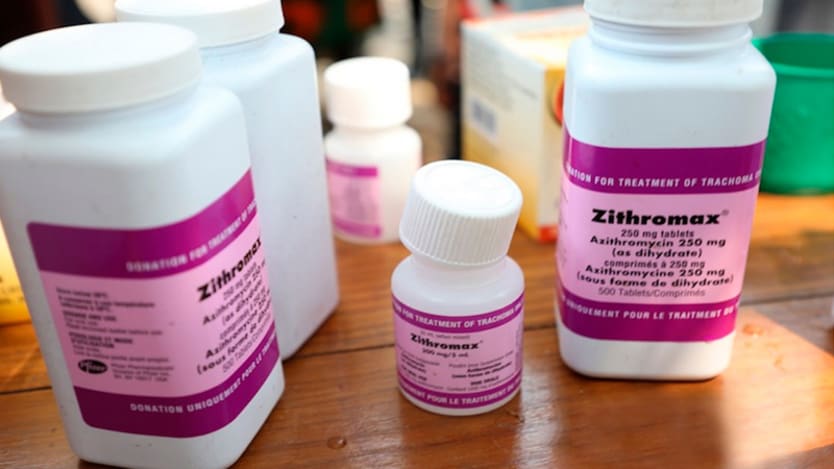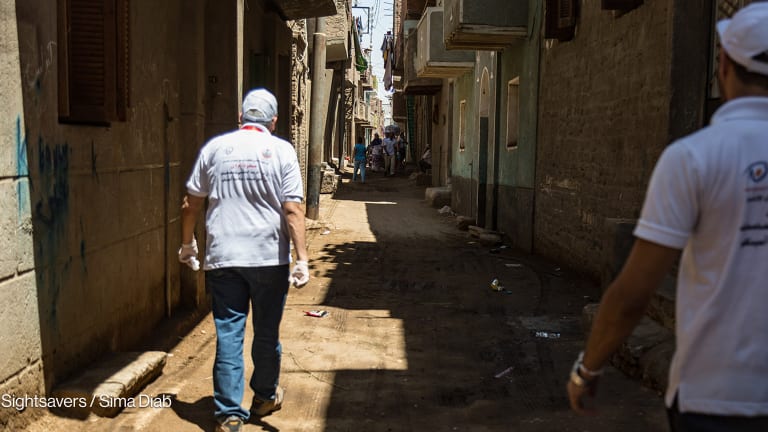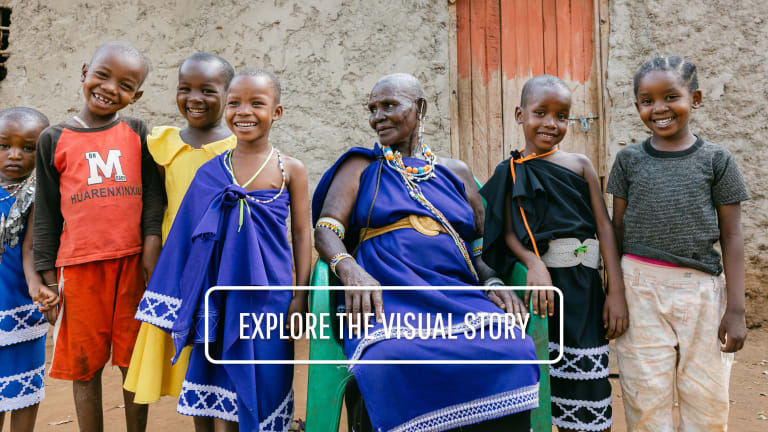
LONDON — Ghana has become the first country in sub-Saharan Africa to eliminate trachoma, the leading infectious cause of blindness worldwide, the World Health Organization announced Wednesday.
Experts credited community, regional, and international collaboration across the public and private sectors for stamping out the disease, which in 2000 threatened more than 2.8 million people in Ghana with blindness, or about 15 percent of the population, according to WHO figures.
“Through collaboration, determination, and sheer hard work, Ghana has eliminated a painful eye disease which has devastated the lives of millions of its most vulnerable people for years, despite being completely treatable and preventable,” said Simon Bush, director of neglected tropical diseases for Sightsavers. More than 20 NGOs have been working in partnership with the Ghanaian ministries of health and gender, as well as Pfizer, the U.S. Agency for International Development, the Carter Center, and others to eliminate trachoma in the country.
“This achievement was only possible because a global alliance worked together — from government departments, international organizations like ourselves, and funders, pharmaceutical companies, and, of course, the communities themselves,” Bush said, adding that although Sightsavers and its partners would celebrate WHO’s announcement, “the fight does not end here. Many other countries are on the cusp of elimination and must continue to push for the elimination of trachoma, and other neglected tropical diseases, across the world.”
WHO estimates that 200 million people in 42 countries are currently at risk of trachoma, mostly in Africa. An infectious condition spread by flies and human touch, it is linked to poverty and a lack of access to clean water and sanitation. If left untreated, eyelashes painfully scratch the surface of the eye and can cause irreversible blindness.
“It’s been 20 years since the global health community committed to eliminating trachoma worldwide,” WHO Director-General Tedros Adhanom Ghebreyesus said in a statement. “Although there’s more work to do elsewhere, the validation of elimination in Ghana allows another previously heavily endemic country to celebrate significant success.”
Cambodia, Laos eliminate leading cause of blindness
Intersectoral collaborations and partnerships, including the engagement of community health workers and leaders, were key in the elimination of trachoma in Laos and Cambodia, says a WHO official.
To date, six countries have eliminated trachoma including Nepal, Oman, Morocco, Cambodia, and Laos. Other countries, such as Uganda, where cases have declined from 10 million in 2014 to less than a half million today, are quickly approaching elimination.
Sightsavers research shows that women are four times more likely to develop trachoma than men, necessitating a strong focus on women in awareness-raising campaigns and efforts to locate and treat those at risk of the disease.
The Ghana partnership also credited early use of the WHO-recommended “SAFE” strategy for tackling trachoma: Surgery, antibiotics, facial cleanliness, and environmental improvement. As a result of collaborative efforts, more than 6,000 people in Ghana had pain-relieving and potentially sight-saving surgery, and 3.3 million doses of the Zithromax antibiotic donated by Pfizer helped to treat and protect people from infection.
This week, Pfizer also announced it would extend its global donations of Zithromax, a key component of the “SAFE” strategy for trachoma control. On Tuesday, Vice President of Corporate Responsibility Caroline Roan told Devex that antibiotic donations would be made available until 2025 to help even the most trachoma-endemic countries reach elimination.
“Our eyes are on the prize with the WHO to eliminate this disease by 2020, but we do know that some of those communities that are in conflict zones or tough areas of the world are really struggling,” Roan explained on the sidelines of the Devex World conference. “So we want to make sure that they know that we have the antibiotic if they need it, and that we will be there as partners until that day when we can call trachoma eliminated from the world.”
Over the past 20 years, Pfizer has donated more than 740 million doses of Zithromax through the International Trachoma Initiative — a partnership with the Edna McConnell Clark Foundation which collaborates with government, nongovernment, and private sector partners to support the WHO trachoma elimination strategy around the world.
The SAFE approach remains vital to eliminating this “disease of poverty,” Roan said, arguing that “a world without trachoma is within reach.”
Elimination refers to the halting of disease transmission in a particular region or area, whereas eradication means that cases of the disease have been reduced to zero worldwide. Only one disease — smallpox — has been eradicated in human history, while diseases including polio, measles and leprosy inch closer.
Search for articles
Most Read
- 1
- 2
- 3
- 4
- 5









